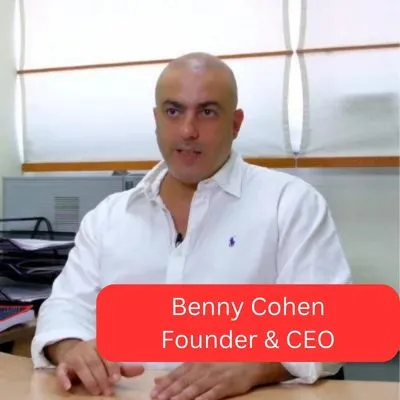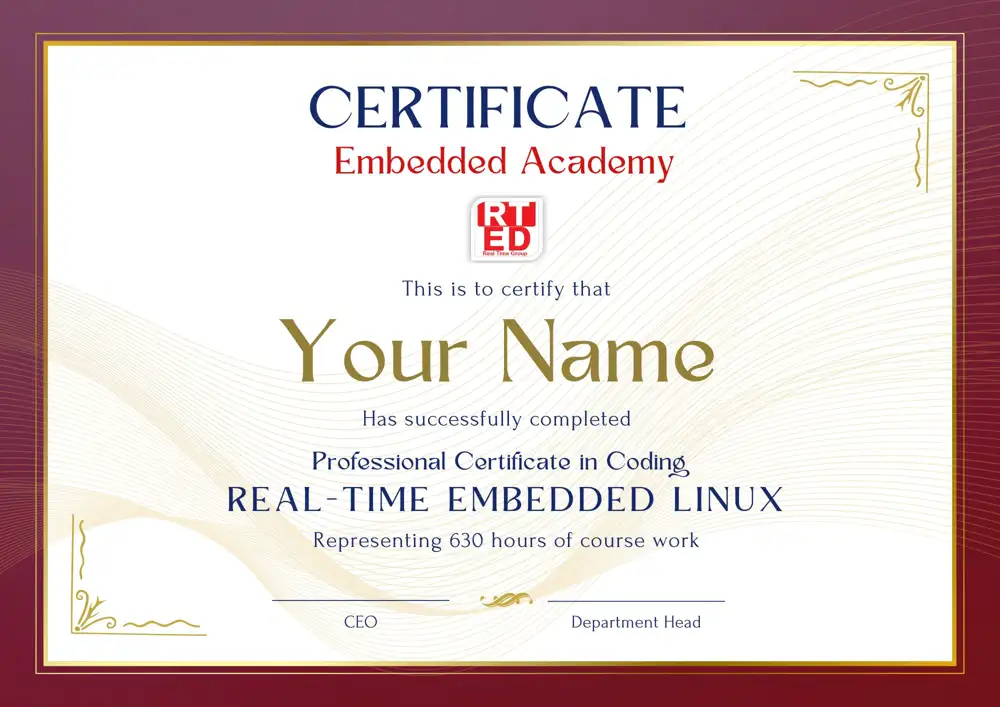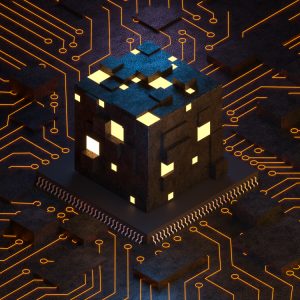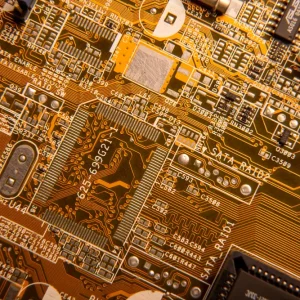The Real Time Bootcamp is an intensive program lasting several months that will provide you with the knowledge and tools required for the following positions:
- Real Time Systems Development
- Embedded Systems Development
- Hardware Device Drivers Development
- Software Development in the Linux User Space
- Linux Kernel Development
About the Embedded Systems Course
The course targets individuals involved in the development of Embedded Systems, systems which are used in a wide range of products such as IoT (Internet of Things) devices, smartphones, vehicles, and more.
The development for such systems is done using specialized tools because precision and speed are required to respond to events in real-time.
Every year, students enroll in this program with the goal of quickly securing one of the many sought-after positions in this field. Therefore, a solid knowledge foundation is required.
What is an Embedded Engineer? An Embedded Engineer is one of the most sought-after roles by many companies in the high-tech industry.
An Embedded Developer programs systems directly on the hardware, similar to Embedded Bare Board Applications.
This type of development is done without an operating system and employs powerful and traditional languages like C and C++.
The integration of our development division's expertise in the Embedded field within the curriculum creates a unique training program. Since 2007, all students who completed the project have found employment at the end of the course.
We offer all the courses in the curriculum to beginner programmers (engineering graduates, computer science, exact sciences, or programmers without experience), while experienced programmers can focus only on the required topics.
Explanation of the Real Time Embedded Field
Embedded computer systems are integrated into our lives through a wide variety of software products and technological items we use on a daily basis.
Computers, smartphones, vehicles, and virtually all technological devices incorporate an embedded computer system that operates either with or without an operating system, serving a multitude of functions.
What are Embedded Systems? Embedded Systems development is necessary to create the optimal integration between hardware and software for various product specifications. In other words, common computing systems like PCs often have dimensions and power consumption that might not suit the requirements of many sought-after computing products.
For example, communication equipment, cameras, media players, smart controllers, and more require embedded systems to provide sufficiently advanced and flexible services. These involve specialized sensors, working with timers and clocks, display screens, sound cards, memory components, networking interfaces, and more.
In the past, the world of Embedded Systems was extremely limited. Computing units required large memory footprints and high power consumption, and hardware performance was basic. Data transfer between devices often relied on magnetic media or non-standard communication protocols, leading to high complexity, inflexibility, and similar issues.
Today, the situation has changed. Hardware operates with dedicated architectures suited to the product's style and is flexible enough for specific customization according to different needs. The software running on the hardware allows highly customized and complex operations, optimally utilizing the hardware's capabilities.
Embedded computer systems include CPUs and encompass a wide range of everyday systems, such as cellular phones, handheld computers (Palm Pilot), remote controls, and more.
Unlike a general-purpose PC, embedded systems are application-specific, optimized to fulfill the requirements of the desired application.
The architecture of these systems differs from PCs in terms of CPU capabilities and speed, System Bus speed, required memory (RAM/Flash), and more.
Programming Languages for Embedded Systems
Choosing a programming language for Embedded Systems is influenced by several factors:
- RAM Memory Size – the volatile memory that holds running files, including Data & Instructions.
- Flash Memory Size – non-volatile storage medium, such as for manufacturing, can be written to multiple times.
- CPU Speed – fast or slow?
- Portability – can the software be installed on different processors or platforms? Is it lightweight for easy embedding and maintenance?
- User Friendly – ease of use for the end-user.
The most popular language for Embedded Systems is the C programming language. C is a basic programming language known for its efficiency and simplicity, making it a perfect fit for Embedded Systems.
Furthermore, C serves as a foundation for more advanced programming languages. If you're interested in programming or building various types of Embedded Systems, we highly recommend learning C.
What are Real Time Systems?
A Real Time system is one that must fulfill certain performance requirements within specific time limits. In other words, the processing duration from the event's detection to the response must be consistent and within a specified timeframe.
There's a common misconception that all Real Time systems are necessarily Embedded systems, but that's not the case. Real Time systems can be based on PCs as well as hardware-implemented systems. The primary component in Real Time systems is the operating system, which must meet the required performance standards.
Examples of Real Time operating systems include:
- RT-Linux
- VxWorks
- MontaVista Linux
Real Time Systems are divided into two main types:
- Hard Real Time – In these systems, it's guaranteed that the response time must occur within a specified time frame (e.g., missile or aircraft navigation). These systems conflict with the capabilities of time-sharing systems and are not supported by general-purpose operating systems, which are intended for a variety of purposes.
- Soft Real-Time – These systems don't require strict adherence to time constraints (best effort). While they respond optimally, a slower response won't be considered a complete failure. Soft Real-Time is useful for applications like multimedia, virtual reality, and Voice Over IP (VOIP). The goal is for the information to reach the recipient within 150 milliseconds. However, in the event that a specific packet did not arrive on time, a system exists that can evaluate the information that was supposed to arrive and thereby conceal the absence of arrival.
The curriculum combines knowledge and practical exercises (lots of practice) in a comprehensive Bootcamp style. The lessons focus on the practical knowledge and skills required of Real Time Embedded developers. The courses were developed in collaboration with high-tech companies in the industry and are continually updated according to projects in our development division.







.webp)
.webp)
















